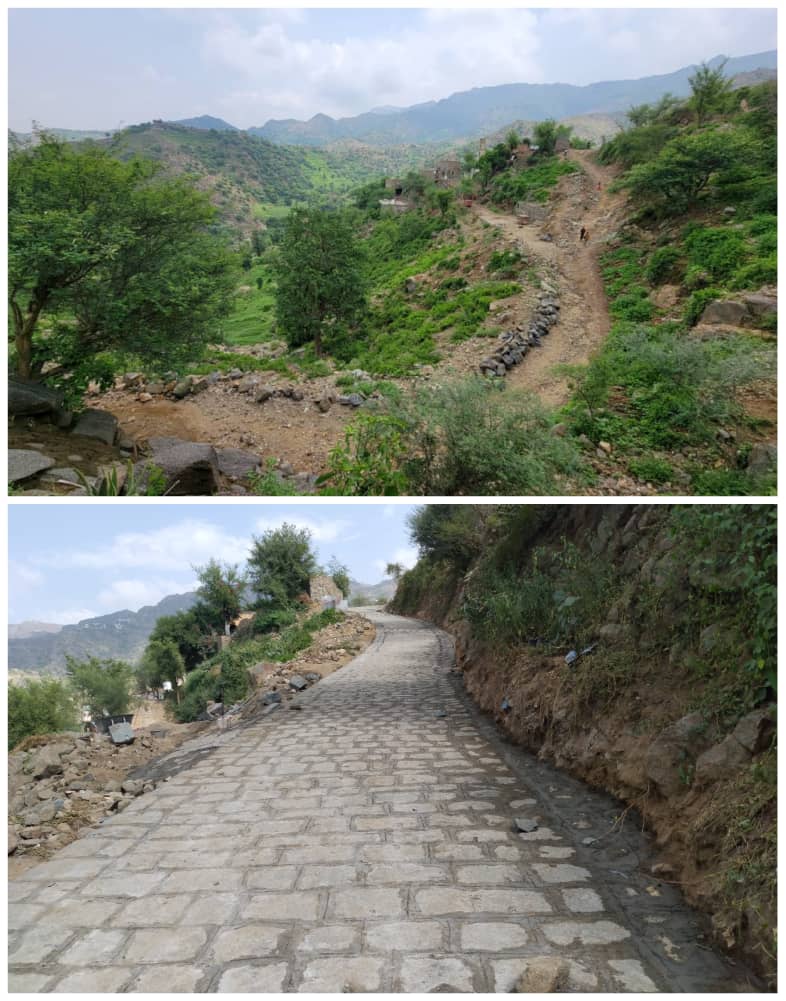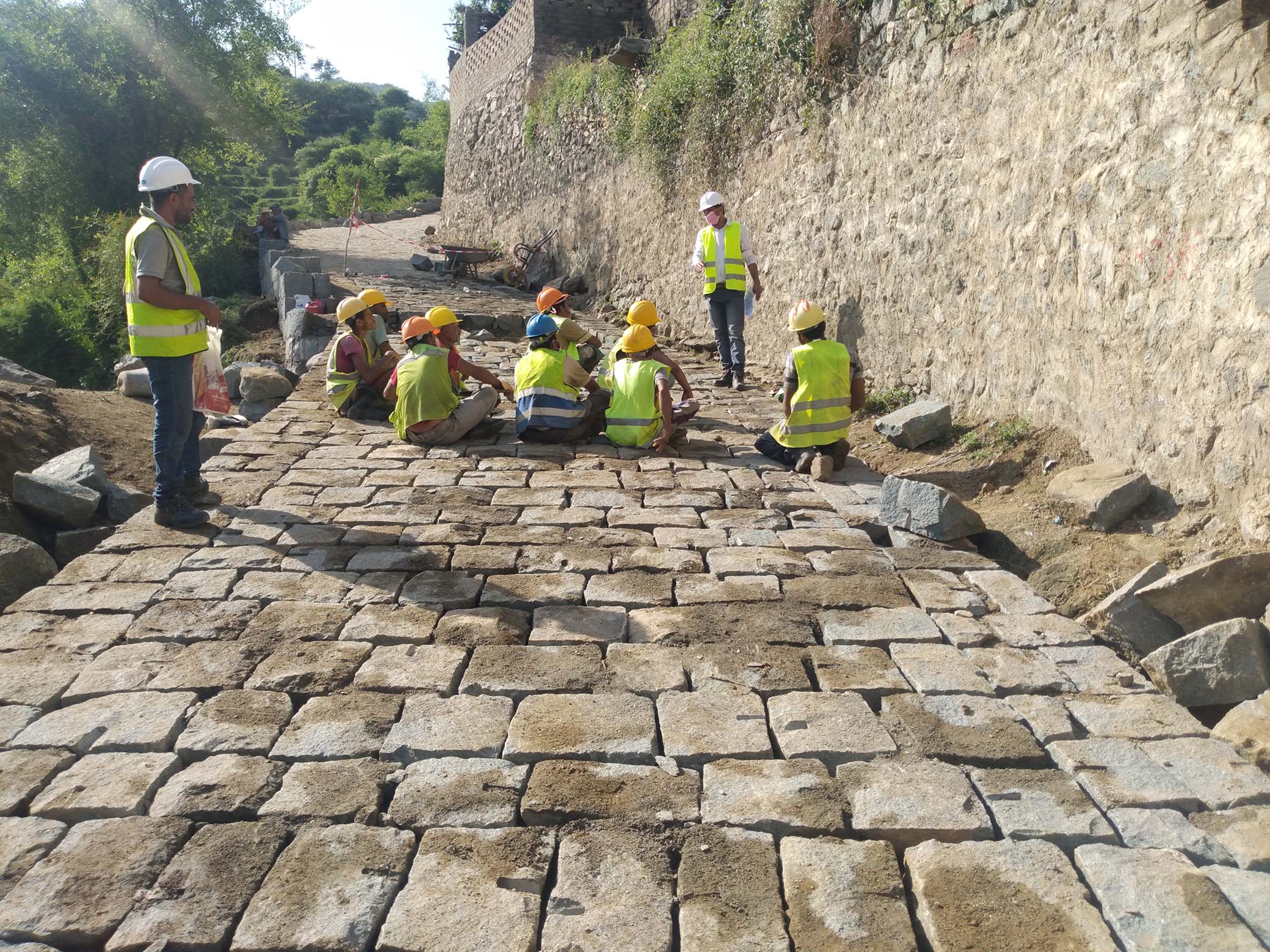Abdulkareem Humaid Al-Akhram, is a young man - who is in his thirty’s - hails from the village of Wadi Sultan in Aslam Nasher subdistrict in the Governorate of Hajjah. He is unemployed and doesn’t have any source of income to earn a living to support his family.
Togther with other young people from his village, he frequently travels between the various districts of the governorates of Hajjah and Amran in search of work. Many of the residents of this village depend on traditional seasonal agriculture, livestock breeding, and beekeeping as their main source of livelihood. However, the income from these activities is insufficient to cover their living expenses and barely covers a few weeks a year.
After reading the advertisement for the project under FSRRP, which is implemented by PWP in partnership with UNDP and funded by the World Bank’s International Development Association (IDA) and FAO, through the community contracting scheme, Abdulkareem, and his friends - Salim and Saleh - decided to bid for the project. He prepared all the requirements for the work and made a submission. Following the completion of all procedures, the beneficiaries committee was poised to announce the winning bid. On the day when bids were to be opened and the winning bid announced, Abdulkareem couldn’t believe what he heard. But when he signed the minutes of the project, he felt assured that he had clenched the deal.
Multiple Benefits
The paving of the road enabled Abdulkareem and other young people from the village to generate income from the work and gain experience in contracting. “The money I made from this project helped me buy some stone-cutting equipment and a vehicle to transport stones to the work site. In addition, I had some money left to enable me to enter a second bid for the project”, says Abdulkareem. He confirms that his living conditions improved and was able buy a mid-size vehicle to transport the stones - which will also help him generate enough income to support his family.
Marketing of Agricultural Products
The residents of the village suffered for many years because of the rough road. They were unable to sell their agricultural products on the market. Small vehicles were unable to travel to the village. During the rainy season, the rough road would be destroyed and people, including women and children would resort to carrying their goods on their back. The paving of the road created food resilience and facilitated access to the market for farmers to sell their products and to buy whatever they need from the market.
This area is famous for the growing of grains (red and white sorghum, millet, and other grains). It also produces some mangoes and some beekeeping activities. More than 512 farmers and 1800 residents benefited from the paving of the road.





